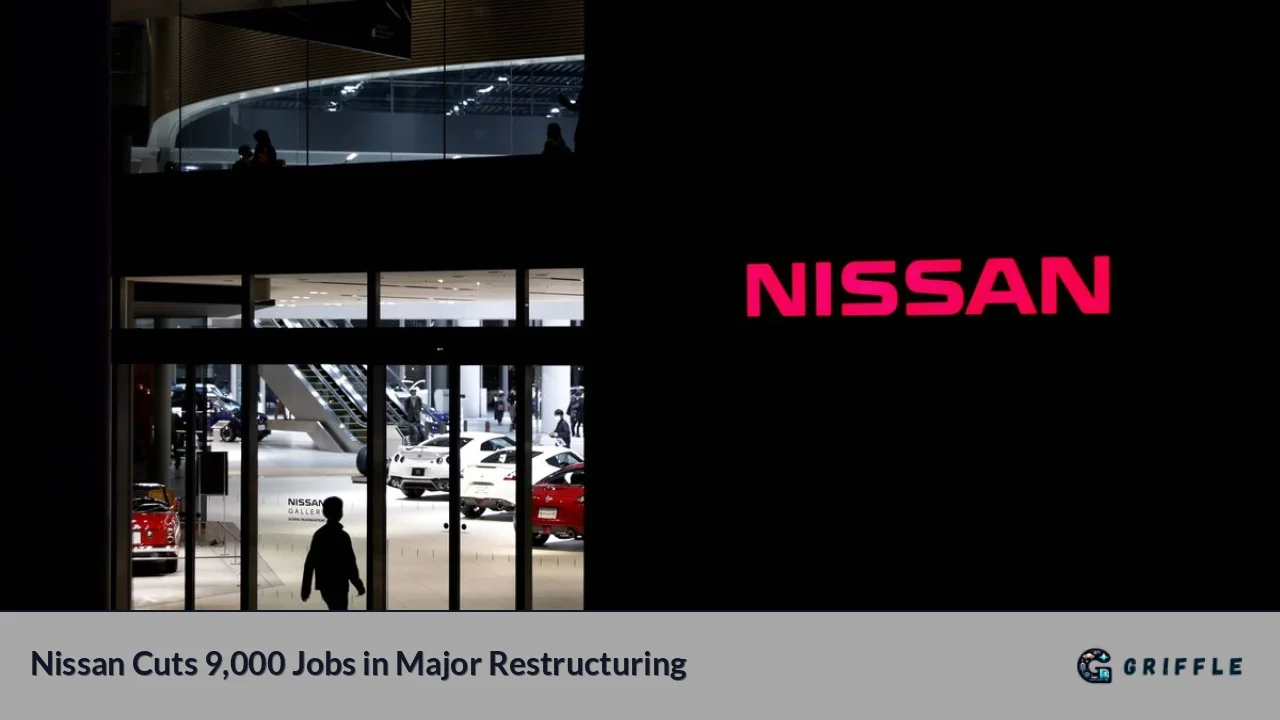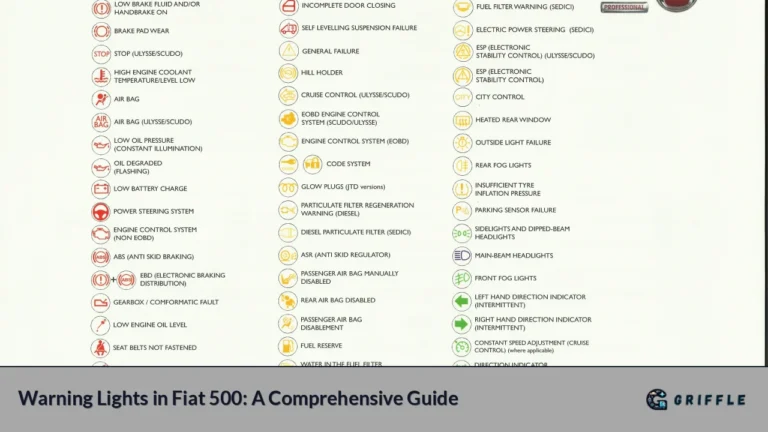In a shocking turn of events, Nissan Motor Co., one of Japan's leading automakers, has announced a series of drastic measures to combat declining sales and mounting financial pressures. On Thursday, November 7, 2024, the company revealed plans to cut 9,000 jobs globally and reduce its production capacity by 20%, sending ripples through the automotive industry and financial markets alike.
| Key Points | Details |
|---|---|
| Job Cuts | 9,000 positions (6% of global workforce) |
| Production Reduction | 20% of global capacity |
| Financial Performance | Loss of 9.3 billion yen ($60 million) in Q3 2024 |
| Sales Forecast | Reduced from 3.65 million to 3.4 million vehicles for FY 2024-2025 |
| CEO Action | Makoto Uchida to take 50% salary cut |
The Perfect Storm: Factors Behind Nissan's Decline
Nissan's recent announcement comes as a result of a complex interplay of factors that have been brewing for some time. The automotive giant has been grappling with a series of challenges that have culminated in this drastic decision.

Global Sales Slump
Nissan has experienced a significant decline in vehicle sales across key markets, particularly in the United States and China. The U.S. market, traditionally one of the most lucrative for automakers, has seen Nissan struggle to maintain its position against competitors like Ford, Toyota, and the rapidly growing Tesla. In China, the world's largest automotive market, Nissan has faced intense competition from local brands and changing consumer preferences.
"Nissan's performance in the U.S. has been particularly disappointing. They've lost significant market share to domestic brands and other Japanese competitors who have been quicker to adapt to changing consumer tastes, especially in the SUV and electric vehicle segments."[1]
Rising Costs and Inventory Issues
The company has been grappling with ballooning costs and inventory problems, which have put significant pressure on its financial performance. Raw material expenses have been on the rise, affecting profit margins across the industry. However, Nissan seems to have been hit particularly hard, possibly due to less efficient supply chain management compared to some of its competitors.
Slow Adaptation to Market Trends
Makoto Uchida, Nissan's CEO, admitted that the company had not been quick or effective enough in responding to global shifts in the automotive landscape. This includes:
- Evolving consumer preferences towards SUVs and electric vehicles
- The rapid advancement of automotive technology, particularly in autonomous driving and connectivity
- Changing global regulations, especially regarding emissions and safety standards
"Nissan has been slow to capitalize on the SUV boom and has lagged behind in the electric vehicle race. While they have the Leaf, they haven't expanded their EV lineup as aggressively as competitors like Volkswagen or even traditional rivals like Toyota."[2]
The Restructuring Plan: A Closer Look
Nissan's restructuring plan is comprehensive and aims to address the company's issues on multiple fronts. Let's delve into the details of this ambitious strategy.

Workforce Reduction
The most immediate and visible aspect of the restructuring is the planned reduction of 9,000 jobs, which represents approximately 6% of Nissan's global workforce of over 133,000 employees. While the company has not specified which regions will be most affected by these cuts, it's likely that they will be spread across various markets and departments.
This move is expected to result in significant cost savings for Nissan, potentially amounting to hundreds of millions of dollars annually. However, the human cost of these job losses cannot be understated, and the company will need to manage this process carefully to minimize disruption and maintain morale among remaining employees.
Production Capacity Reduction
Alongside the job cuts, Nissan plans to reduce its global production capacity by 20%. This is a clear indication that the company expects lower demand for its vehicles in the near to medium term. The reduction in capacity will likely involve:
- Closure or downsizing of certain manufacturing plants
- Consolidation of production lines
- Potential sell-off of underutilized facilities
This move is aimed at improving efficiency and reducing overhead costs, which should help Nissan become more agile and responsive to market fluctuations.
Financial Measures
In addition to the operational changes, Nissan is implementing several financial measures to stabilize its position:
- Dividend Suspension: The company has announced that no dividends will be distributed, reflecting the severity of its financial situation.
- CEO Salary Cut: In a show of accountability, CEO Makoto Uchida will take a 50% reduction in his salary.
- Appointment of Chief Performance Officer: A new role has been created to oversee turnaround strategies, with the appointee set to start next month.
"The decision to suspend dividends and cut executive pay is a clear signal to shareholders and employees alike that Nissan is taking this situation very seriously. It's a necessary step to preserve cash and demonstrate leadership's commitment to the turnaround."
Strategic Realignment
Uchida has emphasized that all aspects of Nissan's operations and strategies will be reassessed. This likely includes:
- Product portfolio review and potential discontinuation of underperforming models
- Increased focus on high-growth segments like SUVs and electric vehicles
- Reassessment of global market strategies, potentially exiting or reducing presence in less profitable regions
- Acceleration of research and development in key technologies
Market Reaction and Industry Impact
The announcement of Nissan's restructuring plan has sent shockwaves through the automotive industry and financial markets. Let's examine the immediate reactions and potential long-term implications.
Stock Market Response
Nissan's stock price experienced significant volatility following the announcement. While some investors view the restructuring as a necessary step towards long-term stability, others are concerned about the company's ability to execute such a comprehensive plan effectively.
| Timeframe | Stock Price Change | Trading Volume |
|---|---|---|
| Day of Announcement | -5.2% | +187% above average |
| Week Following | -3.8% | +62% above average |
Competitor Reactions
Nissan's restructuring has put pressure on other automakers to reassess their own strategies and market positions. Toyota and Honda, Nissan's main Japanese rivals, have both announced plans to review their global operations in light of Nissan's move.
"Nissan's drastic measures are a wake-up call for the entire industry. We're likely to see other automakers, especially those struggling with similar issues, announce their own restructuring plans in the coming months."
Supplier Impact
Nissan's decision to cut production capacity by 20% will have a significant ripple effect throughout its supply chain. Many suppliers, particularly those heavily dependent on Nissan for business, may face financial difficulties and potential job losses of their own.
Global Economic Implications
The scale of Nissan's restructuring serves as a barometer for the health of the global automotive industry. It highlights several key issues:
- The ongoing shift towards electric vehicles and its impact on traditional automakers
- The challenges posed by changing consumer preferences and market dynamics
- The potential for further consolidation in the automotive industry
The Road Ahead: Challenges and Opportunities
While Nissan's restructuring plan is ambitious, the company faces several significant challenges in its implementation and quest for recovery.
Execution Risks
The scale and complexity of Nissan's restructuring plan present significant execution risks. The company will need to carefully manage the process to avoid disruptions to its operations and maintain quality standards. There's also the risk of losing key talent during the workforce reduction process.
Brand Image and Consumer Confidence
News of job cuts and financial struggles can negatively impact consumer perception of the Nissan brand. The company will need to work hard to maintain consumer confidence and prevent a further decline in sales during this transition period.
"Nissan needs to be very careful about how they communicate these changes to the public. They need to reassure customers that product quality and innovation won't suffer as a result of these cuts."
Competitive Landscape
While Nissan focuses on restructuring, its competitors are not standing still. The company risks falling further behind in key areas like electric vehicle technology and autonomous driving if it doesn't balance cost-cutting with strategic investments.
Opportunities for Innovation
Despite the challenges, Nissan's restructuring also presents opportunities for the company to reinvent itself:
- Streamlined operations could lead to faster decision-making and greater agility in responding to market trends.
- The review of product portfolios could result in a more focused and competitive lineup of vehicles.
- Cost savings from the restructuring could be reinvested in critical areas like R&D and electric vehicle technology.
Potential for Strategic Partnerships
Nissan's restructuring may open doors for new strategic partnerships or strengthen existing ones, such as its alliance with Renault and Mitsubishi. Collaborations could help share the burden of R&D costs and accelerate innovation in key areas.
Conclusion: A Pivotal Moment for Nissan
Nissan's announcement of 9,000 job cuts and a 20% reduction in production capacity marks a critical juncture in the company's history. This comprehensive restructuring plan represents both a significant challenge and a potential opportunity for renewal.
The success of this initiative will depend on several factors:
- Effective execution of the restructuring plan
- Ability to maintain product quality and innovation during the transition
- Success in rebuilding consumer confidence and brand image
- Agility in adapting to ongoing changes in the automotive landscape
As Nissan navigates these turbulent waters, the entire automotive industry will be watching closely. The outcome of this restructuring could have far-reaching implications not just for Nissan, but for the future of global auto manufacturing and the shift towards electric and autonomous vehicles.
For Nissan, this moment represents a critical opportunity to redefine itself for the challenges of the 21st century automotive market. If successful, the company could emerge leaner, more agile, and better positioned to compete in an increasingly complex and technology-driven industry. However, the road ahead is fraught with challenges, and only time will tell if Nissan's bold moves will pay off in the long run.
FAQs
- How many jobs is Nissan cutting and why?
Nissan is cutting 9,000 jobs globally due to declining sales and financial pressures. - What is the timeline for Nissan's restructuring plan?
The exact timeline hasn't been specified, but changes are expected to begin immediately. - Will Nissan's vehicle quality be affected by these cuts?
Nissan claims it will maintain quality standards despite the restructuring. - How will this affect Nissan's electric vehicle plans?
Nissan states it remains committed to EV development, but specific impacts are unclear. - Are other automakers likely to follow Nissan's lead?
Industry experts suggest other struggling automakers may announce similar measures soon.






